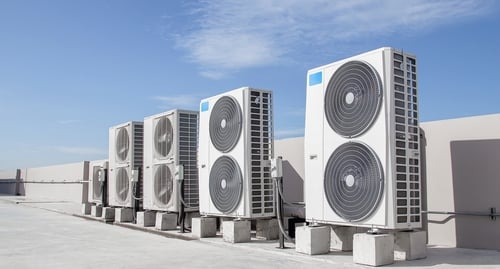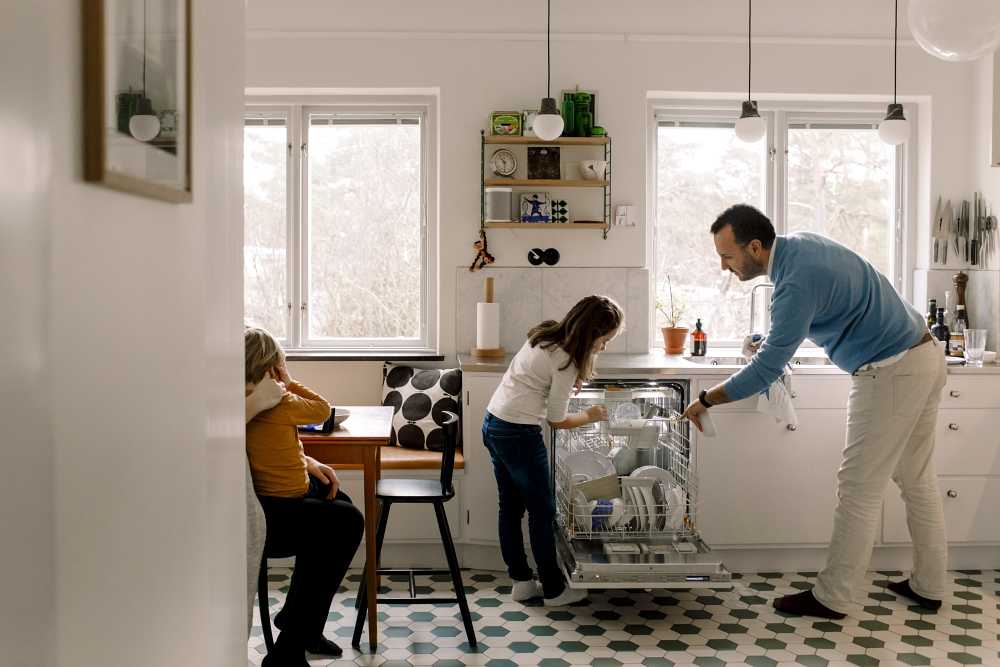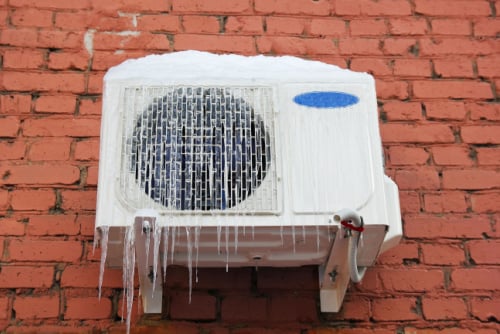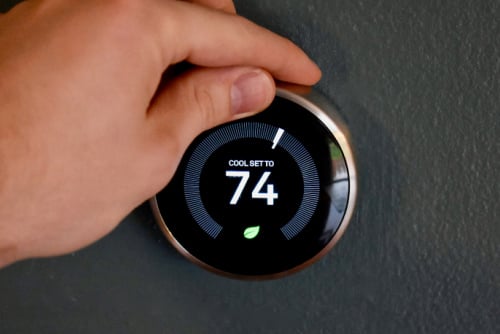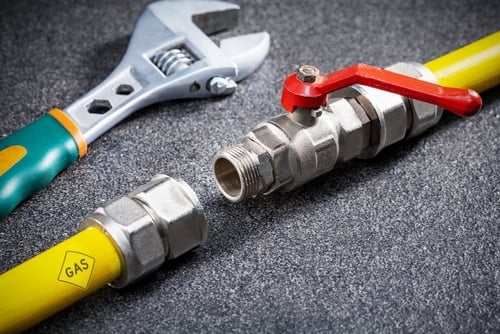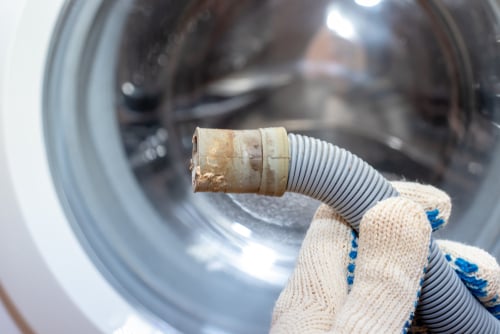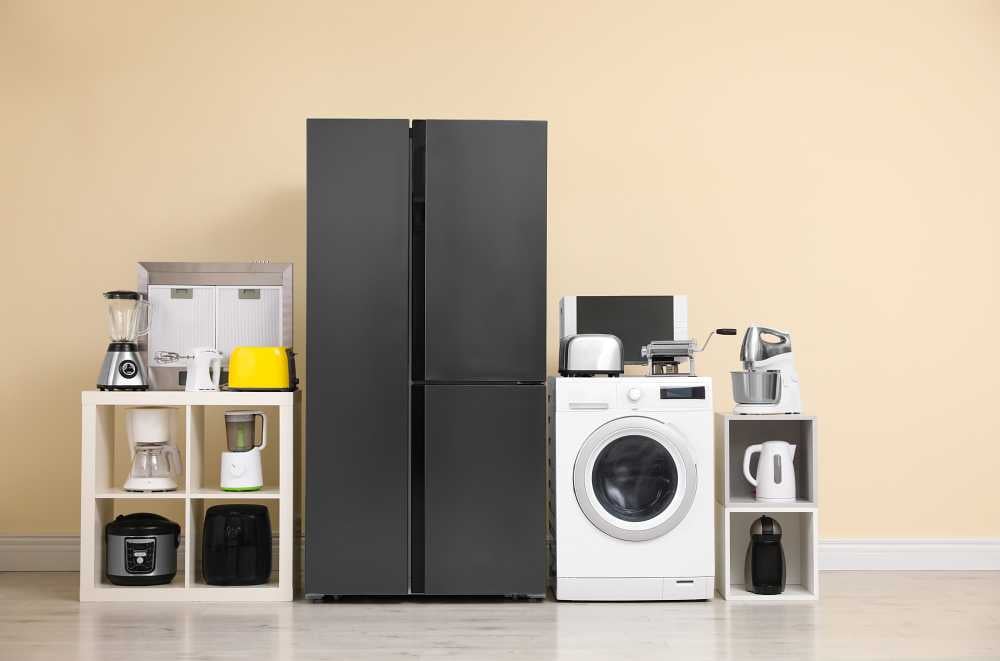If you’re thinking about a new or replacement HVAC system for your home heat and air conditioning, you have a number of options to choose from.The three most popular types of HVAC are split systems, ductless mini-splits, and geothermal units. Each comes with its own set of advantages and disadvantages. Once you know the pros and cons of each types of heating and cooling systems, you’ll be able to make an informed decision based on your needs and preferences.
Types of heating and cooling systems—let’s compare HVAC systems.
Split systems
Split Systems are the type of HVAC you’ll usually find in residential and commercial buildings. They consist of two main components: an outdoor unit containing the condenser and compressor and an indoor unit housing the evaporator coil, blower and heating components.
Pros
- Energy efficiency: Split systems often have high energy efficiency ratings, helping cut both your utility bills and environmental impact.
- Versatility: They can be customized to suit a range of building sizes and layouts.
- Cost-effective: Compared to other options, split systems are one of the most affordable to install and maintain.
Cons
- Ductwork required: They rely on ductwork to distribute conditioned air throughout the building. That can be a problem if your property lacks existing ducts.
- Limited zoning capabilities: Split systems typically cool or heat the entire building, making it challenging to regulate temperatures in individual rooms separately. Zone systems can be added to ductwork, but they’re expensive.
- Space requirements: The outdoor unit requires space around the unit for proper airflow and takes up a larger area around the home when compared with other options.
The verdict: Split decision. Split systems are affordable and versatile, but are only an option if you have existing ductwork.
Mini-split systems
Mini-split systems, also known as ductless systems, are becoming more and more popular because they offer flexibility and energy efficiency. They’re made up of an outdoor unit connected to one or more indoor units.
Pros
- Zoning options: Mini-splits provide personalized comfort and energy savings by allowing for independent temperature control in different rooms or zones.
- Easy installation: No ductwork is needed, so installation is relatively quick and straightforward. There are even a few DIY options available.
- Energy efficiency: These systems use inverter-driven compressors that adjust the cooling and heating output to match the load, resulting in greater energy savings than a split system.
- Smaller footprints and less noise: Compared to split-systems, mini-splits take up less outdoor space and run at a lower decibel level.
Cons
- Higher costs: Mini-split systems can be more expensive to install and maintain than traditional split systems—especially if you need several indoor units.
- Aesthetics: While indoor units are sleek and compact, they still require wall or ceiling installation, which may not appeal to everyone's sense of style.
- Heating options: Heat can be an added option when choosing a mini-split. Keep in mind that this type of heat is best for milder climates. In extreme cold conditions, you’ll need supplemental heat.
The verdict: If you don’t mind the higher sticker price, the zoning capabilities and energy efficiency can make a mini-split system the right option for you.
Geothermal HVAC systems
These use the constant temperature of the ground or groundwater to provide heating and cooling. They’re highly efficient, but come with more complexity and a higher up-front cost.
Pros
- Energy efficiency: That’s the calling card of geothermal systems, which extract or reject heat from the ground, making it possible to deliver a relatively constant temperature year-round.
- Long lifespan: They’re known for their durability, with an average lifespan of 20 to 25 years for indoor components and 50+ years for ground loops.
- Eco-friendly: Since they rely on renewable energy, geothermal systems have a significantly lower carbon footprint than traditional HVAC systems.
Cons
- High initial investment: Geothermal systems cost more upfront because they require ground loop installation and specialized equipment. Government rebates and incentives can only help offset the cost.
- Space requirements: Closed loop systems circulates water in the ground, which means they need a certain amount of outdoor space for installation. Open loop systems pump water from and back to the water table; they’re less efficient and require well water as a source.
- Complexity: A geothermal system requires the expertise of specialized technicians with the knowledge and skills to design, install, and maintain them.
The verdict: Geothermal units offer exceptional energy efficiency and long-term savings, but require substantial upfront investment and the added expense of specialized technicians.
We hope this HVAC system comparison was helpful.
Choosing the right HVAC system type is all about carefully considering your specific needs, your budget and your property constraints. By understanding the pros and cons of each HVAC system type, you can make an informed decision that optimizes comfort, energy efficiency, and overall value for your home or business. Consult with one of our HVAC virtual Experts to assess your needs, discuss the types of heating and cooling systems and determine the best home heat and air conditioning solution for your specific situation.
No matter which type of heating and cooling system you decide is right for your home, count on Frontdoor® to help if something goes wrong. If you haven’t already, download the app for a wide range of helpful DIY tips or to talk with one of our helpful Frontdoor Experts. about home heat and air conditioning, how to compare HVAC systems, or anything else about maintaining your home.
Your first video chat with an Expert is free, but you can also upgrade to a Prime or Premium membership for even more access to our home repair Experts and member benefits to help keep your home running smoothly.
Was this article helpful?
